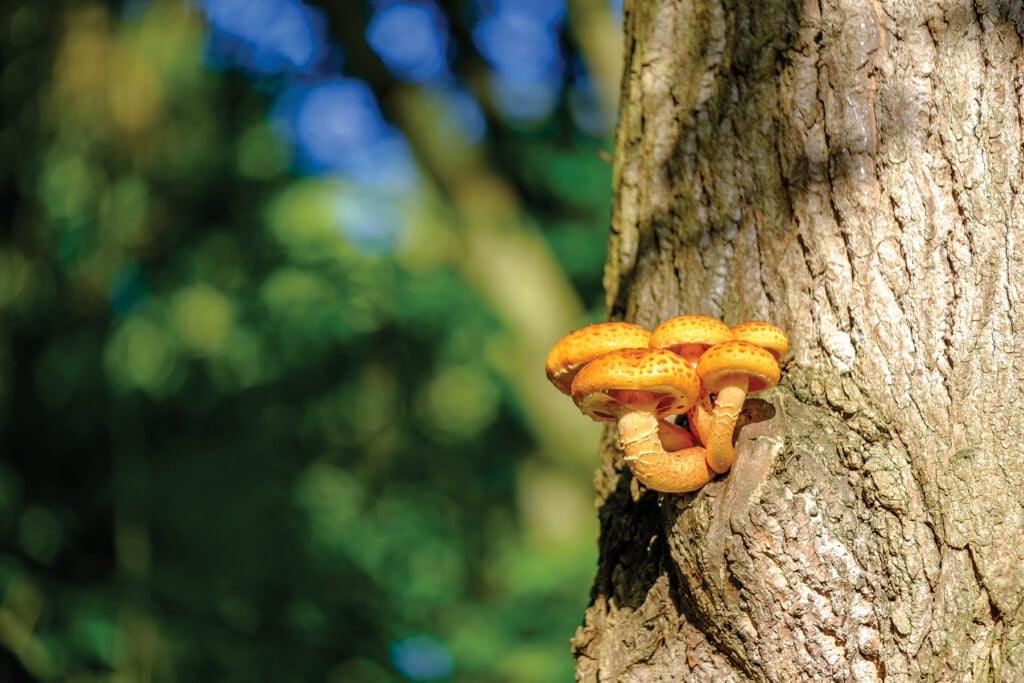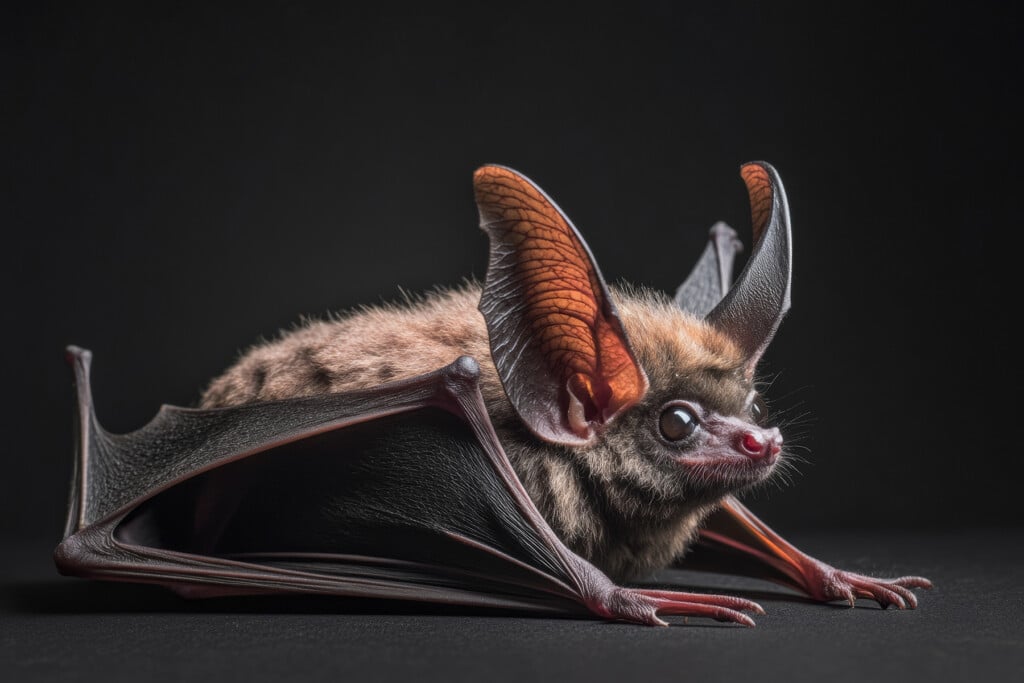Protecting Your Yard
Armored or soft, scale insects can wound plants

Local scale insects are plant parasites that feed on the juices drawn directly from the plant’s vascular system. In general, they can be divided into two main categories: armored or soft. North Florida has both kinds.
Some are very particular about their choice of host plants, while others are far less selective. All use their hair-like mouthparts much like a soda straw—and some are guilty of more than robbing plants and trees of needed fluids. The piercing action used by this insect creates an opening or wound on the plant’s surface that exposes it to a variety of diseases.
When scale insects are not controlled by biological or chemical means, the concentrated populations damage leaves, fruit, twigs, branches, and trunks of the host. Usually, scale populations increase slowly over a period of weeks or months on isolated trees or geographic areas favorable to their development.
Trees and Mushrooms
Unhealthy trees and those with structural weakness are especially hazardous during storm season. There are several key indicators for a tree’s health, one being the presence of mushrooms.
Mushrooms growing on or very close to trees are a sign that the tree is dying. The fungus is not the cause of decline, but it is an indicator of the eventual fate.
The spores that land on decaying wood will likely germinate and take nourishment from the rotting plant material. Their roots accelerate the decomposition of the wood by consuming the available material and exposing more of the tree to colonization by mushrooms.
Sites on trees and plants with mushrooms typically are break points when pressure or stress is applied. If the mushrooms are located at the base of the tree, it is likely to be detached from its roots and fall in heavy winds.
Soil Solarization
Gardeners growing vegetable plants have decisions during the heat of summer. One possibility is to leave beds fallow and prepare for future cultivation. Now is a great time to solarize garden spots. This soil sanitizing technique can be accomplished with a heat-trapping cover that will kill some, if not most, of the weed seeds and insect eggs lodging in the home garden patch. For containers or small plots, a large trash bag weighted down will do. For larger areas, a roll of plastic sheeting will be necessary. The summer heat trapped under the plastic will slowly bake the potentially harmful organisms and render them inert. Earthworms are smart enough to leave the area when it heats up but return when the soil cools.


